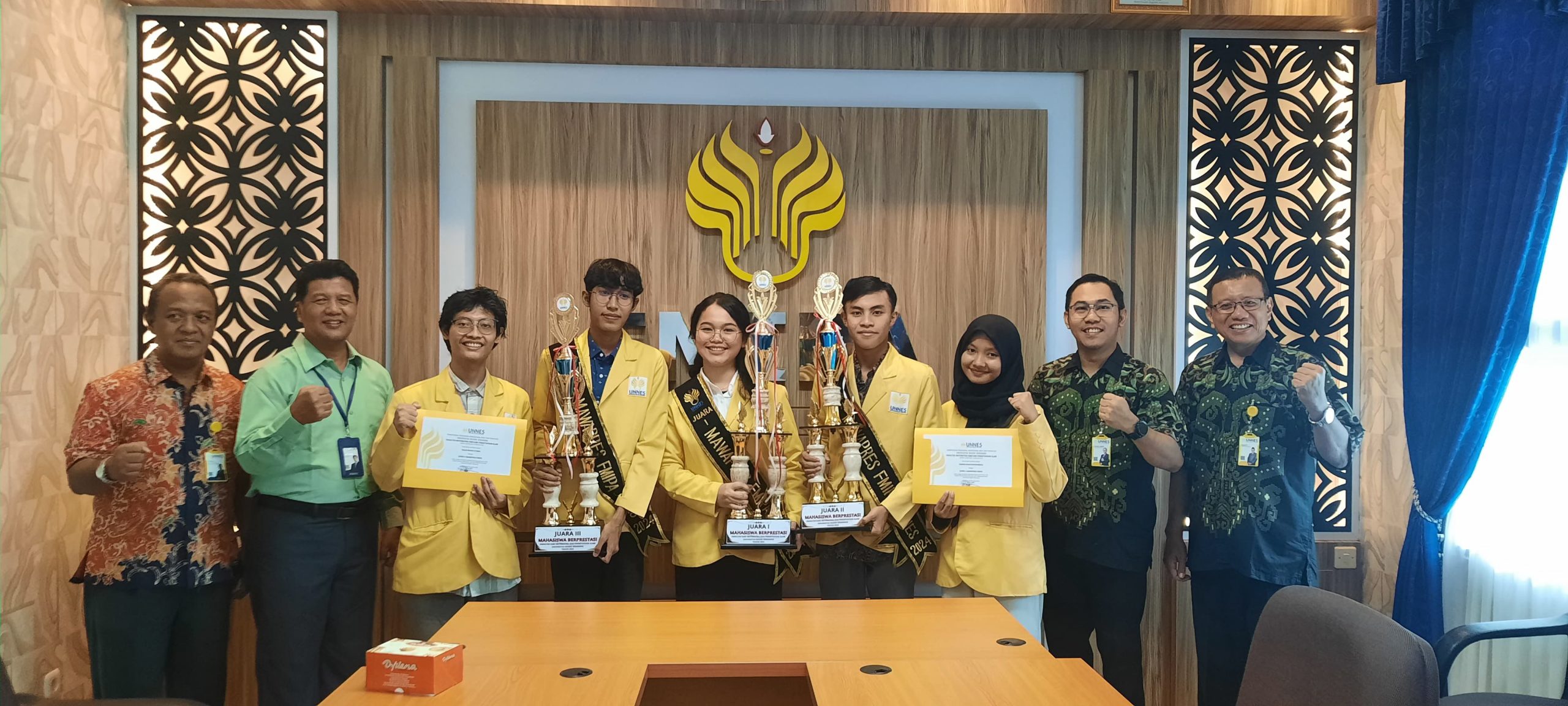
Kholiq Budiman, S.Pd., M.Kom. adalah dosen Jurusan Ilmu Komputer FMIPA UNNES yang menekuni bidang Rekayasa Perangkat Lunak. Sejumlah penelitian terkait Sistem Informasi yang dihasilkannya telah dipublikasikannya baik di artikel yang terbit di jurnal nasional maupun artikel internasional bereputasi. Tahun 2021 ini Kholiq Budiman juga mendapatkan penghargaan Inovasi Terbaik Kategori Dosen dalam UNNES Innovation Award.
Inovasi teknologi merupakan suatu kebutuhan bagi suatu bangsa guna mewujudkan mimpi, cita-cita maupun kemandirian bangsa. Dengan kemandirian bangsa suatu negara dapat berkembang lebih maju tanpa bergantung dengan negara lain. Dengan kemandirian negara maka akan tercipta suatu kondisi yang kondusif dan peluang yang besar bagi pemerintah dalam melaksanakan pemulihan ekonomi sekaligus melaksanakan pembangunan diberbagai sektor (Blanco et al., 2020). Salah satu bentuk kemandirian bangsa di bidang teknologi adalah perwujudan sistem informasi dalam suatu enterprise.
Keberadaan sistem informasi di dalam suatu perusahaan telah mengubah pola pemrosesan data menjadi informasi yang sebelumnya ada dalam lingkungan manual. Perubahan yang sama juga dapat dilihat dari sisi pengguna akhir (end-user) selaku pihak yang mengoprasikan sistem informasi. Perubahan lingkungan ini menimbulkan culture shock yang menyebabkan diperlukannya pembiasaan untuk membiasakan pemakai dengan lingkungan barunya (Ivanova, 2021).
Perusahaan berskala multinasional yang sudah melakukan ekspor-impor produknya memiliki transaksi yang cukup besar pada perusahaannya, hal ini mendorong untuk mengadakan suatu sistem informasi quotation (penawaran) yang mumpuni. Untuk perusahaan yang sudah mumpuni biasanya sudah berlangganan sistem informasi Enterprise Resource Planning (ERP), namun begitu karena tidak kompatibelnya dengan prosedur atau proses bisnis didukung dengan mahalnya biaya sewa yang ada maka sistem informasi ini terpaksa untuk ditinggalkan dan tidak digunakan kembali. Masalah yang biasanya terjadi dalam pemakaian paket software ERP adalah tidak kompatibelnya sistem dengan proses bisnis dan informasi yang diperlukan organisasi. (Abdel-Haq et al., 2018). Ketidaksesuaian desain yang kurang sesuai kebutuhan perusahaan menimbulkan masalah bagi pengguna maupun stakeholder. Kesulitan teknis yang mengganggu dalam penggunaan perangkat lunak adalah masalah interfacing dalam sistem dan kesulitan dalam hardware dapat membuat pemakai frustrasi dan menurunkan tingkat kepuasan pemakai. Jika pemakai merasa tidak puas dengan software yang digunakan, mereka akan mencari cara agar sistem tersebut tidak lagi digunakan. EUCS (End User Computer satisfaction) dapat digunakan sebagai sinyal bagi manajemen untuk mengatasi kesulitan dan ketidaksesuaian ini (Sebetci, 2018).
Dengan penciptaan sebuah sistem informasi Enterprise Resource Planning (ERP) yang memenuhi standar perusahaan dari segi bisnis dan diharapkan kompatibel dengan beragam industri di Indonesia dapat mewujudkan Kemandirian Teknologi terutama di bidang sistem informasi ERP. Penciptaan ini harus direncanakan dengan baik dan dibarengi dengan implementasi yang tepat guna membuat sebuah sistem ERP yang tepat guna dan memiliki kontinuitas yang baik.
Dalam penelitian yang dilakukan Budiman et al. (2021) business proses re-enginering dapat diterapkan sebagai proses analisis status awal dilanjutkan proses redesain sistem menggunakan Business Process Modeling Notation (BPMN) dilanjutkan dengan proses develop dan testing prototype menggunakan extreme prototyping dan pengujian blackbox kemudian proses implementasi yang menggunakan metode parallel implementation dapat meningkatkan sustainibility dari sistem ERP yang dibangun. K. Budiman et al., (2021) menyatakan sistem yang telah dibangun menggunakan perencanaan yang matang menerapkan Business Prosess Re-engineering dapat meningkatkan nilai dan membuat sustainibilitas dari sebuah sistem bertambah.
Referensi
Abdel-Haq, M. S., Chatti, H., & Asfoura, E. (2018). Investigating the Success and the Advantages of Using ERP System in KSA Context. Engineering, Technology & Applied Science Research, 8(6), 3631–3639. https://doi.org/10.48084/etasr.2367
Blanco, I., Salazar, Y., & Bianchi, I. (2020). Urban governance and political change under a radical left government: The case of Barcelona. Journal of Urban Affairs, 42(1), 18–38. https://doi.org/10.1080/07352166.2018.1559648
Budiman, K., Putra, A. T., Alamsyah, Sugiharti, E., Muslim, M. A., & Arifudin, R. (2021). Implementation of ERP system functionalities for data acquisition based on API at the study program of Universities. Journal of Physics: Conference Series, 1918(4). https://doi.org/10.1088/1742-6596/1918/4/042151
Budiman, Kholiq, Subhan, S., & Efrilianda, D. A. (2021). Business Process re-engineering to support the sustainability of the construction industry and sales commodities in large scale transaction during Covid 19 with integrating ERP and Quotation System. Scientific Journal of Informatics, 8(1), 84–91. https://doi.org/10.15294/sji.v8i1.27969
Ivanova, M. (2021). Digital transformation of management in the global pandemic. International Scientific Journal “Industry 4.0,” 75(2), 72–75.
Sebetci, Ö. (2018). Enhancing end-user satisfaction through technology compatibility: An assessment on health information system. Health Policy and Technology, 7(3), 265–274. https://doi.org/10.1016/j.hlpt.2018.06.001




